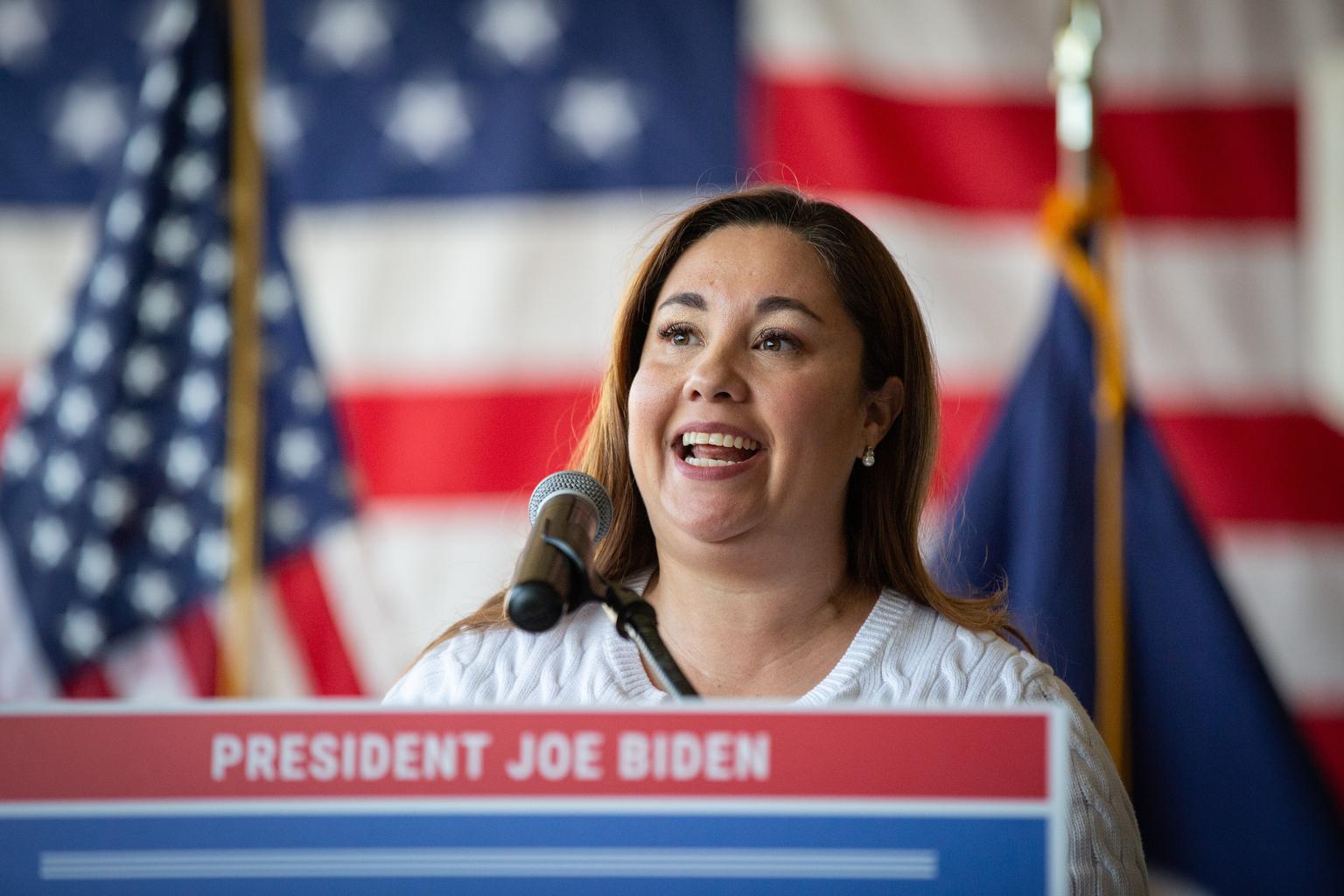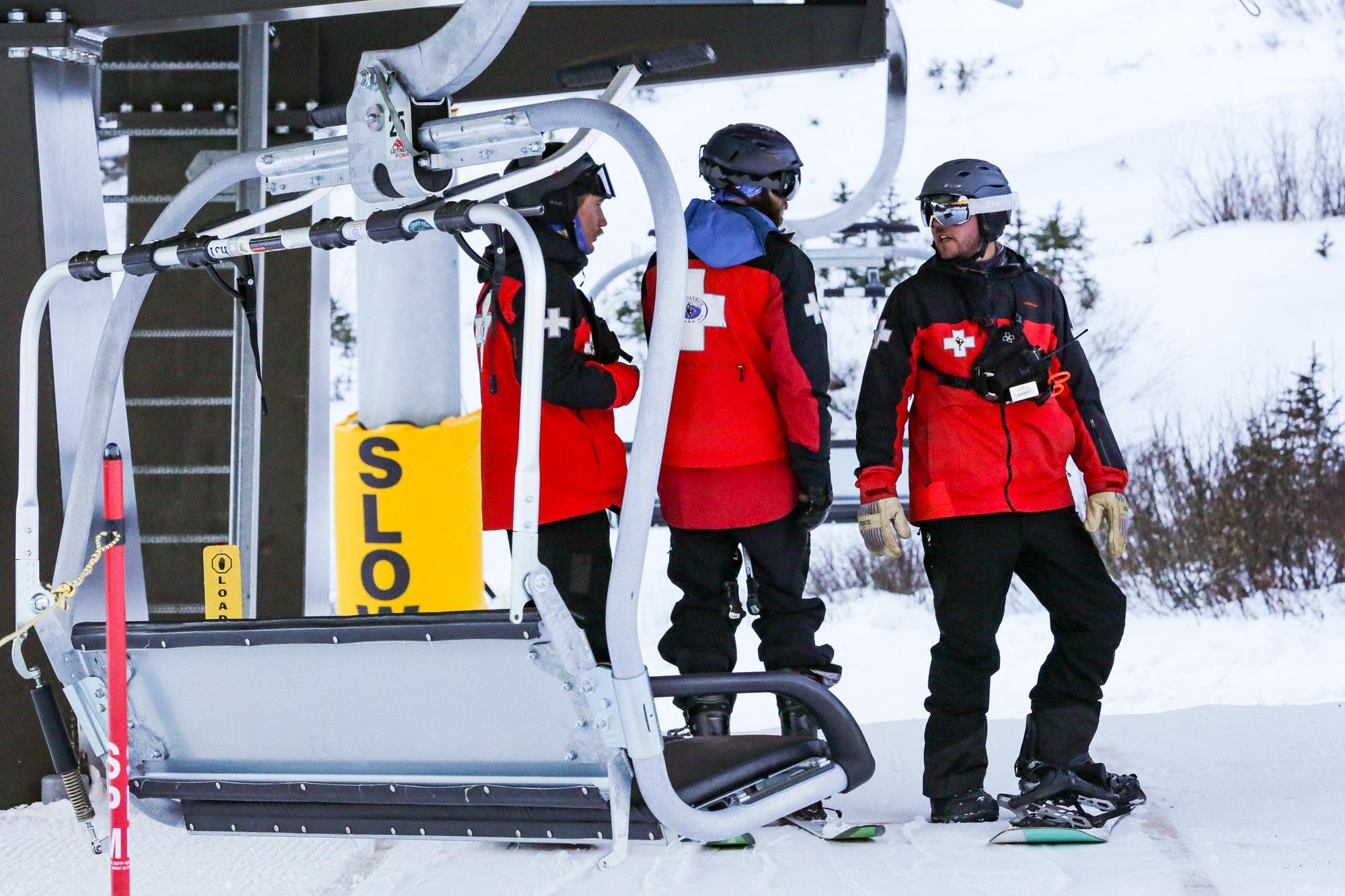
When Colorado’s 8th Congressional District was formed in 2022, it was designed to be the state’s only toss-up territory, split equally between the two major parties.
Indeed, Yadira Caraveo, a Democrat, was sent to Washington by the slimmest of margins. Now, facing a reelection challenge in what appears to be another closely contested race, the pediatrician and former state legislator has been taking that reality to heart.
“When I won by 1,600 votes, I don't think that was a mandate to go either far right or far left – I think that people really want me to stick to the center and make sure that I'm offering solutions that integrate the opinions of Republicans, Democrats, and Independents, which is the majority of the district,” Caraveo told Colorado Matters host Chandra Thomas Whitfield. “It's not just the job title. It is really a description of what needs to be done, and I make sure to try to balance the opinions of all of my constituents when I approach many issues, not necessarily what my party wants me to do.”
It’s an approach that would seem to make Caraveo decidedly unique, particularly amidst the ultra-partisan atmosphere permeating Washington, DC these days. In a far-reaching discussion, she spoke with Thomas Whitfield about straddling that line, which included voting with Republicans to condemn Vice President Kamala Harris’ work at the southern border. She also addressed spending two years trying to get the farm bill passed, as well as going public with her decision to seek treatment for depression.
This interview has been edited for length and clarity.
Chandra Thomas Whitfield: Please name for us a specific problem in your district and explain why voters should send you to D.C. to address it.
Rep. Yadira Caraveo: I hear constantly about the cost of living in the district. Every single time that I talk with constituents about it, about their issues, it is about the cost of housing, the cost of many of the things that they need to get through their lives. And it is a very hardworking and working-class district. I have focused on those issues with housing bills that are looking at building up affordable housing in the area, with a recent package of bills looking at the cost of child care and water and health insurance and making sure that we're reducing costs there. And as a doctor, the cost of healthcare is something that comes up over and over in the district. I have introduced bills around pricing transparency so that you know what you are going to be expected to pay when you go to a hospital, as well as making sure that we're continuing to negotiate for the price of money medications.
I started that work here in the State House. I am continuing it in Congress with making sure that we maintain insulin at a low cost of $35 per month for seniors, that we expand the number of medications that Medicare is able to negotiate on, and that we are really pushing back against pharmaceutical companies and insurance companies that really dictate too much of our healthcare.
Thomas Whitfield: So if a voter came to you and said, "You've been in Washington for two years now, why hasn't this already been fixed?" What would be your response?
Rep. Caraveo: My response is that I have been in the minority party. And despite that, I had one law signed by the president last year and have had three bills total go across the House floor and over to the Senate. And so I'm being effective as a member of the minority, but it is important to make sure that seats like this one stay blue so that we can flip the House to Democratic control and really focus on work. Right now, really over the last 20 months, I have seen the chaos that the Republican Party has been in, and therefore transmitted really to the rest of the United States because they're really more focused on infighting and messaging bills and not actually getting down to solutions that everyday people need.
Thomas Whitfield: Your opponent, Gabe Evans, makes the argument that the district's economy has taken a multi-billion dollar hit because of energy regulations that you supported during your time in the state legislature and in Congress, which in turn has made home ownership in the district more expensive. What's your response to that?
Rep. Caraveo: I'm not sure what Representative Evans is talking about because the way that I have always approached energy policy is really looking at balance. It is important to continue to foster oil and gas exploration and development in Colorado because for the 8th District that is a huge part of the economy and produces a lot of jobs here, but we also need to keep in mind the health effects. Commerce City, which is also part of the district, sees a disproportionate amount of pollution and its effects on healthcare. And today, as I sit here in the office, I can't see the mountains. And I know that when I was a pediatrician, every time that I saw a day like today where the air quality was poor, I was going to be sending kids to the emergency room because of trouble breathing.
And so that balanced approach is how I have looked at legislation in the State House, and now as a representative in Congress, really making sure that we continue to look at an evolution to renewable sources of energy, but also acknowledge that oil and gas is an important part of the 8th District's economy and that it will continue to be around for some time. And we need to make sure that we're focusing on clean sources of energy that include everything from nuclear oil and gas, solar, and wind.
Thomas Whitfield: What do you find to be the trickiest part of navigating the rural and urban aspects of the 8th District?
Rep. Caraveo: They have much more in common than you would think. I know that when people look at the district, they say, "Oh, it starts in the suburbs of Denver, and then goes up into Greeley and encompasses a big rural area. That must be a strange balance." But ultimately, it is about the family struggles that I see. Whether I'm in Commerce City, Fort Lupton, Greeley, or Berthoud, everybody is worried about putting food on the table, making sure that they keep a roof over their kids' heads, and I have really made sure to approach that in a way that balances both the rural and suburban parts of the district that many people think might be disparate.
Thomas Whitfield: Let's switch to another important topic. Fentanyl has killed thousands of Coloradans in recent years. As a state legislator, you've introduced and co-sponsored bills dealing with different aspects of addressing this issue. What steps would you take in Congress to address the root causes? Please be specific.
Rep. Caraveo: Sure. So in one of the most do-nothing Congresses since the Civil War, the president signed 44 bills into law last year, and one of those was mine. And it looks at the next wave of drugs that is coming to Colorado, specifically looking at a drug called Xylazine, or “tranq” is its street name, that is being added to fentanyl and is really augmenting the number of overdoses that we are seeing across the country. I had that bill passed and have signed on to a number of laws that really look at stopping the flow of fentanyl in ways that make sense, that we are investing in technology just like my law does by making sure that we can test for these substances, so that when individuals are exposed to this in the drug pipeline or first responders are coming to a scene, they know exactly what it is that they're being exposed to, and that we are securing the border in a smart way to make sure that we're getting to some of the root issues with how Fentanyl is getting into the United States.
I also, though, am looking at substance abuse issues and saying we can't just penalize people out of a disorder like addiction. It is an issue around healthcare, and we need more individuals in the substance abuse realm to be able to treat Coloradans and not just penalize them for what ultimately is an issue of addiction.
Thomas Whitfield: Is there bipartisan support of all that?
Rep. Caraveo: Yes. My bill was bipartisan. I was actually happy to carry it with a representative who also was a freshman. We were the first two freshmen to have a bill signed into law in this Congress, and many of the other laws that we are looking at in looking at the flow of fentanyl are also bipartisan.
Thomas Whitfield: The ads for your campaign really emphasized your bipartisan efforts as a legislator, which in many ways, feels contrary to what's happening in a very, shall we say politically-divided Washington, DC. Why did you choose to take that approach? And what do you say to critics, especially fellow Democrats, who think you should adhere to the party line?
Rep. Caraveo: It is something that is important to me in a family that has members of both parties and has tough discussions many times around what we see wrong and right with our country. It was something that I learned to do in the state legislature here where the vast majority of bills are bipartisan and some of the best friends that I made are Republicans that maybe I don't agree with on all of the issues, but are good people who are seeking to serve Colorado. And so I took those lessons to Washington, DC and in particular with this kind of district, it is what my constituents have asked for and deserve. When I won by 1600 votes, I don't think that was a mandate to go either far right or far left. I think that people really want me to stick to the center and make sure that I'm offering solutions that integrate the opinions of Republicans, Democrats, and Independents, which is the majority of the district. And my job ultimately is to represent the people of the 8th District.
It's not just the job title. It is really a description of what needs to be done, and I make sure to try to balance the opinions of all of my constituents when I approach many issues, not necessarily what my party wants me to do.
Thomas Whitfield: In July, you joined a handful of Democrats voting with Republicans "strongly condemning" the Biden administration and Vice President Kamala Harris for not securing the border. That seems at odds with your previous work as a state legislator. During your tenure there, you sponsored a number of bills focused on protecting the rights of immigrant workers. Tell us what inspired what appears to be an apparent change in approach.
Rep. Caraveo: Once again, it's representing the community that I live in and that I represent as the congressperson for the 8th District. I have heard from immigrants themselves, the frustrations around the immigration system, and that is why I introduced a package of bills that really looks at securing the border, making sure that we're doing that in an intelligent and technologically savvy way, that we are making sure that states like Colorado, that have interior cities that have dealt with a surge in the number of migrants, are getting federal resources to address that issue, but also that we are providing a way for people to legalize their status. Both parties have failed at this for almost 40 years now. The last time that we really had comprehensive legislation on immigration was when my parents naturalized their status in the ‘80s, and that was in the Reagan administration. Democrats have been in charge and Republicans have been in charge at many different times during those last 40 years, yet immigration reform has not happened.
And so I am happy to tell both parties about the mistakes that we have made along the way, but also offer solutions through my package of bills, and to note that the Senate had a bipartisan bill that had been negotiated on that was not perfect for us, but was also not perfect for Republicans. But the Speaker of the House, at the will of former President Trump, both of whom support my opponent, decided not to bring that to the House, not to get down to it and talk about solutions because this was really a more convenient issue for them to campaign on rather than actually fix.
Thomas Whitfield: Agriculture is a big industry in your district, and you, of course, sit on the House Agriculture Committee. Congress had two years to pass a new farm bill and it has not. What are you doing now, and what do you plan to do going forward, if re-elected, to try and get a farm Bill passed? Again, please be specific.
Rep. Caraveo: Yes. This is one of the perfect examples of how frustrating Washington can be. I have, over the last 20 months, had many conversations with farmers and ranchers and producers, as well as consumers of all of the incredible food that we grow here in Colorado. And the beauty of the Farm Bill is that it is supposed to bring all of those communities together because 85 percent of the money spent in the farm bill goes to SNAP benefits, formerly kind of known as food stamps, but make sure that kids like the ones that I saw in clinic every single day have a stable source of food. That community that I talk to about these issues every single day in the 8th District, that doesn't seem to translate to what we do in Washington. And so the two parties have sometimes hit kind of stalemates around this bill that has really resulted in delaying the process of getting a farm bill.
That is why when the farm bill came up in committee, I was one of only four Democrats that voted to get it through committee, joined Republicans to say, “This is a process that really needs to get moving.” But the bill that I'm voting on is not perfect, right? It seeks to cut SNAP benefits for many people. It seeks to get rid of a lot of the climate initiatives that farmers and ranchers in my district really, really care about. And so we need to come together as two parties to really discuss these tough issues. I did it by voting on a Republican bill, and I hope that once this election is over, many of my colleagues will do the same thing and we can finally get the farm bill across the finish line.
Thomas Whitfield: In August, you spoke with our Washington, DC correspondent about you being treated for depression, which you attributed in part to experiencing what you described as some of the frustrations of a new job and everything that goes on in Washington, DC. Where do things stand with you now in that area? And should you be reelected, what do you personally plan to do to help change the frustrating environment in Congress that you say adversely impacted your health?
Rep. Caraveo: Well, I'm doing very well now, and that is in large part to the resources that I have as a member of Congress, being able to be treated at Walter Reed and to have some of the best doctors in the country be able to look at what is a chronic health condition and treat me in the best way possible. That is something that every single member of the community should have. Depression is incredibly common in our society, yet we don't talk about it much, and that is one of the reasons that I decided to come forward and speak about something that's very personal to say, “Everybody can be affected by this. Everybody should seek treatment for it if you are affected by it because it can get better.”
And I have backed that up, as a legislator, by introducing a number of bills that hopefully would make this easier for people in the future, whether it's the agriculture worker hotline, because agricultural workers have a suicide rate that is three and a half times that of the general population, or whether it's looking at youth with my experience as a pediatrician, looking at what some of the root causes are for Latino depression in particular, because we have a higher rate than the general population, what we need to do around suicide prevention, and also looking at the workforce issues that we have, because when I was seeing kids as young as eight with depression and anxiety, and I was trying to find them a place to seek counseling or to see a psychiatrist, if it was a more complicated diagnosis, it would take three or four months to be able to get them the care that they needed. That's absolutely unacceptable.
And as somebody that didn't have to go through that three to four-month wait to get the best care possible, I think that it's my responsibility to pay it forward, to talk about this publicly, and to make the system better for people in the 8th District and Coloradans overall.








